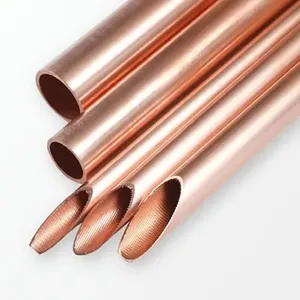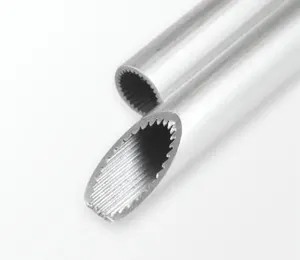Types of ce rohs fcc certification
The FCC, CE, and RoHS certifications all serve different regulatory purposes for consumer electronics. FCC certification confirms that a product complies with US Federal Communications Commission regulations for signal-emitting devices. CE certification indicates compliance with European health, safety, and environmental protection standards, while RoHS certification specifically restricts hazardous materials in electrical and electronic products. Obtaining all three types of certification may be necessary for selling a product in the US and EU markets.
Types of CE certification include:
- Product Certification: certifying specific products to verify compliance with applicable safety standards.
- Management System Certification: ISO certifications of the organization's quality management system, demonstrating its ability to consistently provide products meeting customer requirements and regulatory standards.
- Certification of Persons: certifying individuals to ensure they possess the necessary competencies to carry out specific activities related to product compliance and CE marking.
Types of ROHS certification include:
- ROHS 2: RoHS 2 refers to the revised RoHS directive which expanded the list of restricted substances and included plastics. It applies to electrical equipment put on the market in the EU and requires the use of certain plastics.
- ROHS 3: RoHS 3 is the RoHS Directive 2011/65/EU, which restricts the use of hazardous substances in electrical and electronic equipment. It is known as RoHS 3 because it is the third version of RoHS.
- ROHS EXEMPTION: RoHS exemptions are materials or products exempt from RoHS regulations restricting the use of certain substances. Exemptions allow continued use of restricted substances if no suitable alternatives exist.
- ROHS Compliance: RoHS compliance means complying with RoHS regulations that restrict hazardous substances in electrical and electronic equipment. This requires demonstrating compliance through documentation and certifications showing products do not contain restricted substances.
- RoHS Technical File: RoHS technical files compile technical documentation proving compliance with RoHS regulations. Having a technical file is an important requirement for demonstrating compliance with the RoHS Directive.
Types of FCC certification include:
- OEM Certification: FCC certification obtained by equipment manufacturers (OEMs) for radio frequency devices they produce for sale in the U.S. market. OEMs must ensure compliance with FCC rules and file reports.
- Supplier Certification: Supplier certification for FCC compliance refers to suppliers certifying that components or parts they supply are compliant with FCC regulations. This is important because many finished products involve multiple suppliers.
- Testing Lab Certification: Refers to accredited testing laboratories certified to perform testing and certification of products for compliance with FCC technical standards. Only certain recognized labs can test and issue certifications.
- Product Certification: The primary purpose of FCC certification is to provide assurance that specific products, especially those that emit radio frequency energy, comply with FCC rules protecting Wire Communications.
Functions and Features
The certifications provide proof that the product has met specific standards and regulations. Each mark shows several aspects that help the business get certification faster. The CE mark indicates compliance with the European Union legislation. The CE certification shows that the product meets the EU standards for health, safety, and environmental protection. The process of getting the mark involves self-declaration or assessment by a notified body.
The FCC certification shows that the electrical devices sold in the US don't interfere with the radio frequency. Doing independent testing or hiring a recognized testing body to verify compliance makes a company eligible for FCC certification.
The ROHS certification restricts the use of specific hazardous materials in electrical and electronic items. The Certification ensures companies adhere to sustainable and environmentally-friendly practices. To get the certification, a supplier must test the product to make sure it complies with ROHS standards. They must also provide documentation showing the material used in manufacturing the product.
Features of CE, ROHS, and FCC Certification
- The certifications protect consumers by regulating products and controlling their entry into the market.
- They provide evidence that products are safe to use and have met specific quality standards.
- The certifications help businesses improve compliance with local laws and standards.
- They minimize the risk of accidents associated with using electrical products.
- CE certification creates free movement for goods around the EU market. FCC marks allow the free distribution of items in the US market. ROHS certification is recognized worldwide.
- The marks on the product increase brand awareness. They are proof of compliance and help the business gain a competitive edge in the market.
- The certifications help reduce the cost of warranty claims and repairs by certifying the product is safe to use.
- They make it easy to enter other markets by providing proof that the product meets that country's standards.
Scenarios of ce rohs fcc certification
Various industries use CE, RoHS, and FCC certifications to promote product safety and sustainability. CE marking attests to compliance with European health, safety, and environmental protection standards. Conversely, the RoHS directive restrains the use of hazardous substances in electrical and electronic equipment.
FCC certification, common in the USA, confirms that gadgets that emit RF shall not interfere with the national telecom network. These rules apply to compliance testing for consumer electronics such as wireless and Bluetooth devices, which must bear an FCC label to be marketed in the USA.
CE certification, which is a mark of quality, is mandatory for various consumer electronics, including:
- Medical devices: These refer to apparatus, instruments, devices, software, implants, reagents, and anything else used to diagnose a patient's condition. They include many consumer electronic products, such as thermometers and blood pressure cuffs.
- Machinery: This includes a wide range of machinery products made by many different sectors, from industrial to agricultural machinery.
- Gas appliances: CE marking certifies compliance with essential safety requirements for gas appliances. The Gas Safety (Installations and Use) Regulation mandates this.
- Electrical equipment: Relevant electrical equipment must comply with the low voltage directive of the CE marking to ensure consumer safety. This includes everything from cables to light bulbs.
- Personal protective equipment: CE marking certifies that this equipment complies with health and safety legislation to protect the wearer, including helmets, fire-resistant clothing, goggles, and safety footwear.
- Pressure equipment: CE marking must comply with the Pressure Equipment Directive for products such as boilers, pressure vessels, and pressure pipes to ensure safety.
- Toy safety: Toys must have the CE mark to show compliance with the essential health and safety standards of EU legislation.
- Lifts and accessories: CE certification that confirms compliance with the Lifts Directive must be affixed to lifts and elevator components.
The CE, RoHS, and FCC certifications play an important role in making various industries safer and more environmentally friendly. Products that comply with CE requirements are less likely to cause fire or explosions.
How to choose CE, ROHS, FCC certification
When buying certified products in bulk, manufacturers or suppliers should be sure of the certifications. The following tips can be helpful when choosing a certifying body.
- Cost: The costs of getting certified vary according to the complexity of the product and the testing required. Therefore, manufacturers should compare costs among several certification bodies before choosing one.
- Reputation: The body's reputation is a key factor. Take time to read reviews or get referrals from others in the industry to find a reliable certification body.
- Expertise: Check the body's experience and expertise in certifying products within a specific industry. This is crucial for understanding specific standards and requirements and facilitating the certification process.
- Customer support: Choose a certifying body that offers excellent customer support. They should be able to respond to questions regarding the certification process, product modifications, or maintenance of the certification.
- Post certification services: Inquire whether the organization offers consultancy services after certification. They should provide guidance on following standards, responding to non-compliance issues, or even recertification.
- Accreditation: Ensure that the organization is accredited to issue the type of certification relevant to the business. Accreditation offers some assurance that the organization meets industry standards and will provide the necessary certification.
- If the product will be sold in the EU or Germany, using a German or European certification body may reduce wait times for getting FCC CE certification. This is because some requirements, like language, documentation, and applying for exemptions, can be faster when the certifying body is in Europe.
Q&A
Q: What do the CE, RoHS, and FCC certifications mean?
A: The CE mark is required for products to be marketed in the EU. The RoHS certification states that electronics cannot contain hazardous materials. FCC states that the product doesn't emit radio frequency that can interfere with other electronic devices.
Q: Is CC certification required in other countries besides the EU?
A: CC certification is only required for countries within the European Union. However, other countries have their own compliance certifications that are similar to the CC certification.
Q: Which electronics require CE, RoHS, and FCC certifications?
A: Many types of consumer electronics require these certifications. Some common ones include:Wireless devices like phones, tablets, laptops, etc.Lighting equipment such as LED lamps or bulbs.Cables and accessories that connect electronic gadgets.Appliances used in homes like ovens, fridges, washers, etc.
Q: What happens if the product does not comply?
A: Non-compliance can lead to the rejection of the product at customs, fines, and legal penalties. It can also lead to harming the buyer's business reputation.





















































